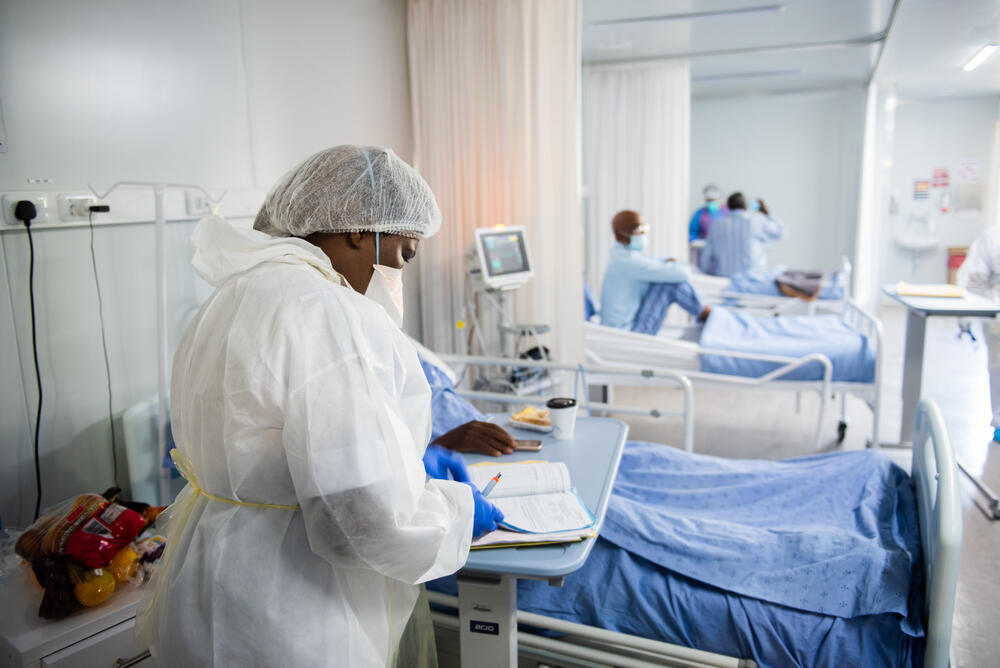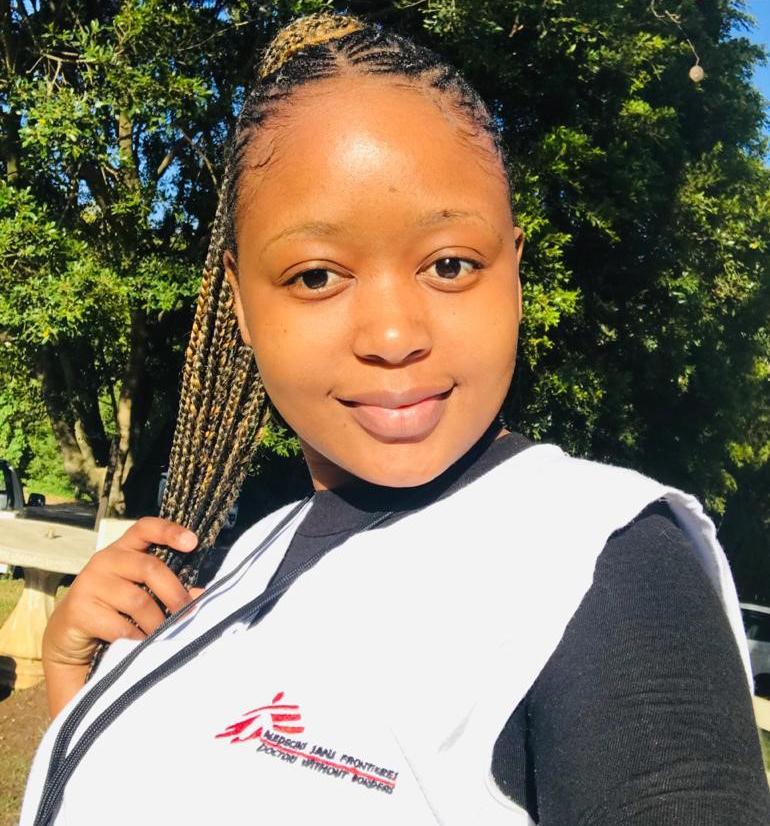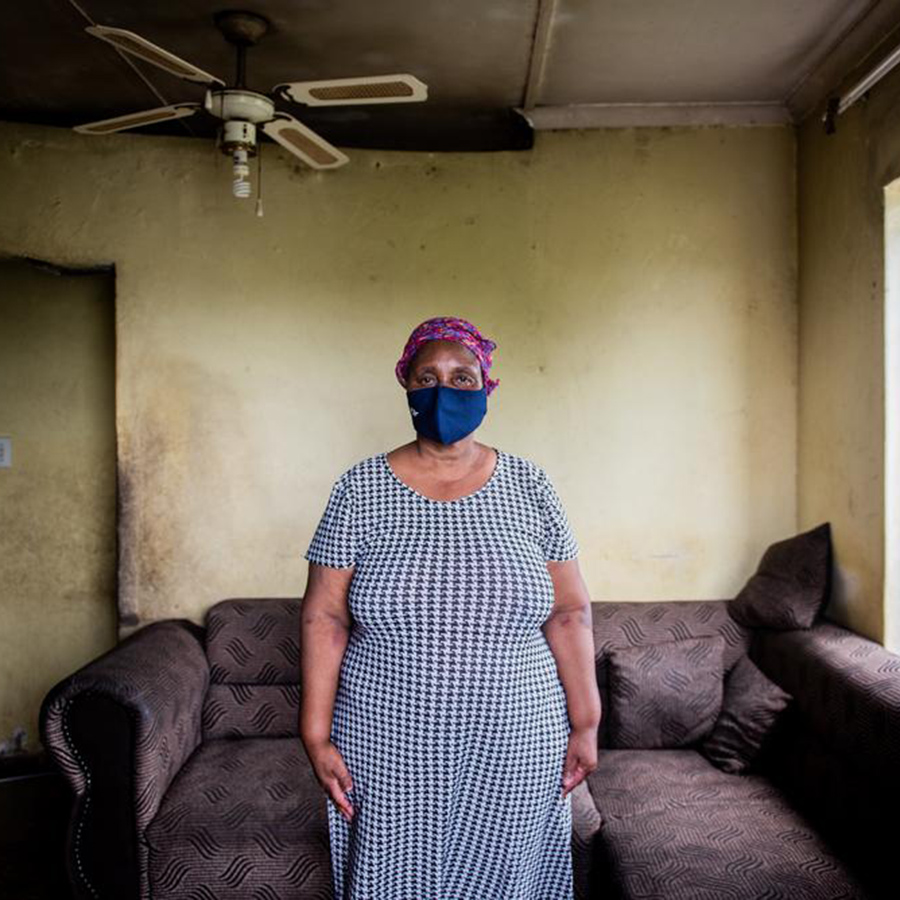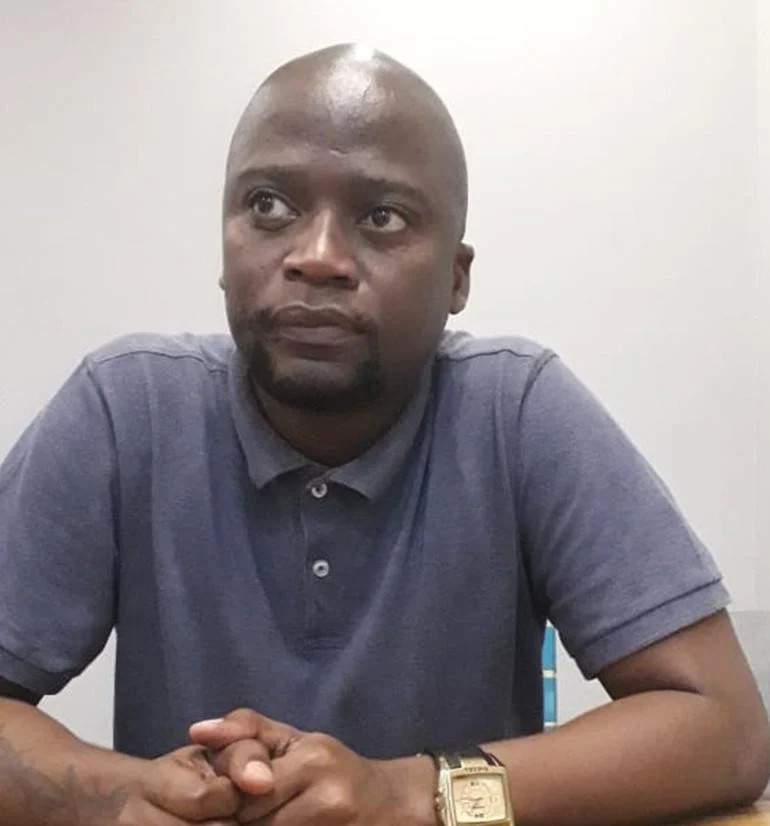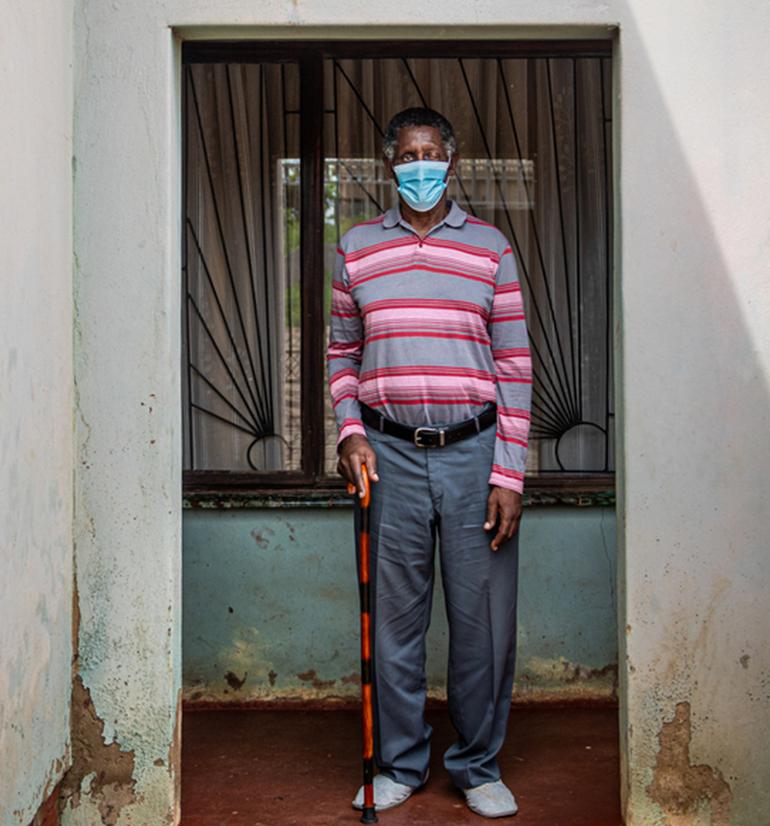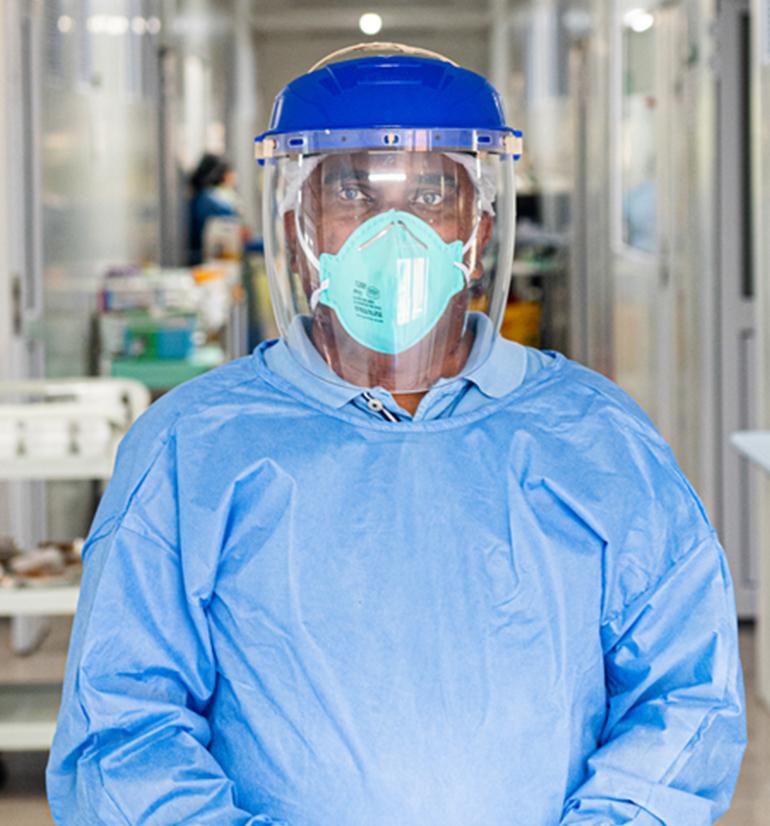COVID-19: Battling the second wave in South Africa
Still reeling from a devastating second wave, South Africa is now preparing for a potential third peak in COVID-19 infections.
The national vaccination programme is proceeding extremely slowly, and many experts believe that travel around Easter could trigger this new rise in cases. Our teams across the country are now actively working towards a state of readiness in areas already hit hard – drawing on our experience and focusing on care inside hospitals.
Here, we share five stories from staff and patients on the frontline of the pandemic in South Africa.
Mpilo Luthuli | Nurse
“On my first day on the job at Livingstone Hospital I was working in the trauma unit. The Livingstone staff were great, they did not make us feel like outsiders. However, it was so disheartening to see so many people in need of help.
There was equipment that had been provided in abundance, yet it still wasn’t enough for the amount of people who needed help with COVID-19. I witnessed a lot of people losing their lives within the first day.
A situation that made me emotional there was seeing a university student die from COVID-19 right before my eyes, yet this person had walked in seeming fine and had only complained about having shortness of breath.
Seeing someone deteriorate and die so rapidly was a shock but there were some inspiring times – days when very sick patients who had been denied ICU care because they were too old, or had underlying conditions, recovered in our care. Some left us inspiring letters or drawings.
Thembani Hleleni | COVID-19 patient
“I started to lose my appetite and I was sleeping all the time, so I went to the hospital. A doctor said I had COVID-19 symptoms and gave me a letter to be admitted.
I was tested, and when the results came back positive I was transferred to Ward C, and then to the field hospital. I was very worried, my mind wandering all over. But, the nurses both in Ward C and the field hospital were very nice to me, even the ambulance transfer was smooth.
When it came to my time to be discharged, the MSF doctor – Dr Madala, I remember his name – examined me and noticed that I had developed a kidney infection. I stayed another week. But, I am so grateful this was picked up because I might have returned home perhaps just to die.
Since I was discharged in early February, I'm now at home and my condition has improved quickly. I feel well now."
Phakamane Mtuli | General orderly
"I work as an orderly at Ngwelezana Field Hospital.
I first saw an ad in the paper and I applied. I knew it was a COVID-19 ward and as much as it was scary, I told myself if I can do one thing that can change a person's life, or make someone happy, I'll sleep well at night.
This was my mission. I'm not a doctor, I cannot give life to a person, but I can assist.
If there is small thing that I can do to make a person happy, I will do it. Often, I must also look after my own well-being. In order for me to help the next person, my personal safety comes first: that was my motto every day.
It has been a great journey, challenging, but not scary. You need to have a positive attitude towards people and towards COVID-19, as many survive."
Medical care where it's needed most
Help us care for people caught in the world's worst healthcare crises.
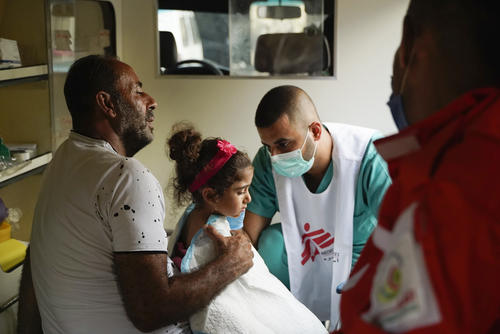
Josias Madela | COVID-19 patient
“I was showering and the next thing I fell. My family rushed me to hospital.
I was asked questions about my health and then they gave me a bed and tested for COVID-19. I lost my eyesight years ago but every process was explained, and this calmed me.
When the result was positive, I was moved a short distance to a COVID-19 ward in the hospital, which I must say I enjoyed. I was looked after well, as were the other patients.
I was discharged from Ngwelezana Field hospital in late January 2021."
Dr Manny Thandrayen | Medical coordinator
"I manage medical activities at Ngwelezana Field Hospital.
The first thing that struck me when I joined the MSF team was the fact that the South African Department of Health had agreed to collaborate with a non-governmental partner on the COVID-19 response.
I have worked in senior management positions in public hospitals for many years, and I can tell you this is rare. However, these partnerships are much needed, given how COVID-19 has tended to overwhelm already very stressed healthcare facilities across the country.
Leaders in medical NGOs and their counterparts in government need to find ways to collaborate efficiently and quickly, as when MSF arrived at Ngwelezana it was already the peak, which limited the potential impact.
How do we ensure that the right partnerships are in place weeks before, in order to save the maximum number of lives? This is an important question.”
MSF and the COVID-19 pandemic
MSF teams are directly responding to the COVID-19 pandemic in over 40 countries. We are opening or reopening new projects as they become pandemic hotspots or as the number of cases rises.
Our COVID-19 response focuses on three main priorities: supporting health authorities to provide care for patients with COVID-19; protecting people who are vulnerable and at-risk; keeping essential medical services running.
